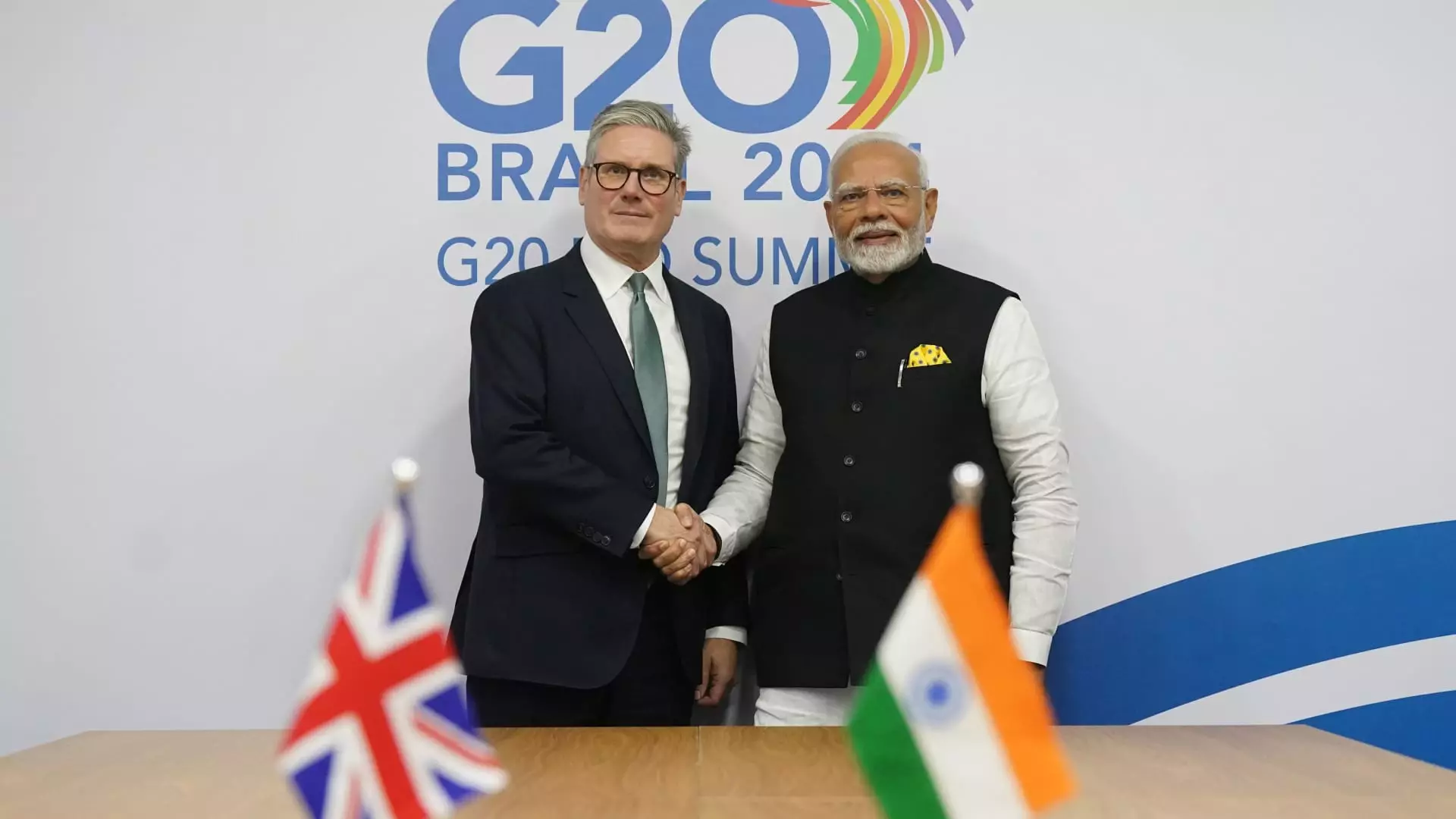The American approach to international engagement is undergoing a troubling transformation. Once the cornerstone of global economic stability, the United States now signals less commitment to multinational institutions, exemplified most recently by its scaled-back participation in the G20. This strategic withdrawal is not merely a political stance—it’s a dangerous regression that threatens to fracture the delicate fabric of global cooperation. The Biden administration, despite inheriting a more moderate stance from Trump, appears to be playing into a pattern of skepticism that undermines the very pillars of lead-by-example diplomacy.
By deliberately sidelining itself from critical dialogues at the G20—especially on issues like climate finance, global health, and sustainable development—the U.S. risks ceding influence to nations like China and Russia. Historically, the G20 served as a vital forum for fostering consensus among the world’s largest economies. When the world’s largest economy withdraws or diminishes its presence, it emboldens autocrats and populists who prefer unilateral actions and zero-sum negotiations over shared responsibility. This retreat from multilateral cooperation could set a precedent that destabilizes existing international norms.
A Narrowed Focus: Back to Basics or Backward Steps?
The U.S. administration’s recent moves to truncate G20 proceedings—focusing solely on core financial issues and stripping away environmental, health, and energy discussions—are emblematic of a shortsighted, insular approach to global governance. Such a strategy operates under the guise of efficiency but in reality signifies a fundamental disdain for the interconnectedness that sustains the global economy. Development, climate, and health are not peripheral concerns—they are intrinsically linked to stability and prosperity.
This narrow focus signals an alarming shift towards a “back to basics” mentality that assumes these issues can be addressed in isolation. However, evidence suggests otherwise. Ignoring climate change and sustainable development not only jeopardizes future generations but also weakens the economic foundations those issues support today. The increased likelihood of market disruptions, environmental crises, and health pandemics directly correlates with neglecting these domains. To dismiss them as secondary simply reveals a dangerous disconnect from reality.
The Power Imbalance and the Erosion of Soft Power
The U.S.’s diminishing participation is also a calculated play for influence, but it could backfire spectacularly. Instead of leading by example and shaping international norms, the United States risks ceding the moral high ground to nations like China and Russia, who are eager to fill the vacuum. Their willingness to participate actively—despite their own geopolitical flaws—positions them as leaders in global negotiations. Meanwhile, U.S. diplomats might find themselves relegated to the sidelines, powerless to mold a coherent international agenda.
This shift undermines the very essence of soft power, which relies on respect, credibility, and leadership in global issues. When the United States prevaricates or retreats, its global standing diminishes. We may stumble into a new era where multilateral cooperation is perceived not as a necessity but as an inconvenience—weakening America’s influence and paving the way for autocratic regimes to dominate international discourse.
Consequences for Global Development and Stability
A reduced U.S. influence within the G20 also jeopardizes progress on critical challenges faced by the most vulnerable countries. Development efforts—ranging from debt relief to sustainable infrastructure—depend heavily on the United States’ commitment. When Washington distantiates itself from collective efforts, it sends a signal that the U.S. prioritizes short-term political gains over long-term global stability.
Such a stance undercuts decades of diplomatic work to promote equitable growth and reduce inequality. Activists and developing nations watch with concern, recognizing that these moves could stall vital progress. The linkage between financial stability and development is well-understood: neglecting either impairs the other. If the U.S. portrays itself as indifferent to global development frameworks, it risks eroding trust and cooperation that are essential to emerging crises like debt crises, inflation, or climate-induced disasters.
Is This Strategy Short-Sighted or Deliberately Divisive?
Critics argue that this retrenchment is not merely a strategic recalibration but a fundamentally flawed approach rooted in nationalism and skepticism of global institutions. While some U.S. officials claim to want a “return to basics,” this perspective dangerously oversimplifies complex issues. What might seem like pragmatic realism could, in fact, be a form of abdication—an abandonment of leadership responsibilities that risks making the U.S. less relevant in shaping the future.
Moreover, by excluding key issues like climate and health from diplomatic focus, the U.S. devalues the importance of collective action. This shortsightedness ignores the dire consequences of global challenges that transcend borders—whether it’s the threat of pandemics, climate-induced migrations, or economic shocks. As the world becomes more interconnected, the mistake of retreating into nationalism and zero-sum tactics reveals a lack of understanding or concern for the long-term stability of the international order.
Ultimately, the path the United States is choosing veers away from fostering genuine global cooperation. It risks leaving behind the very partners and allies who could help address the pressing crises of our times—crises that require collective action, shared responsibility, and unwavering commitment to multilateralism. Instead of leading a united front, America’s recent trajectory risks sowing discord, weakening trust, and diminishing its moral authority in shaping a more just and sustainable world.


Leave a Reply